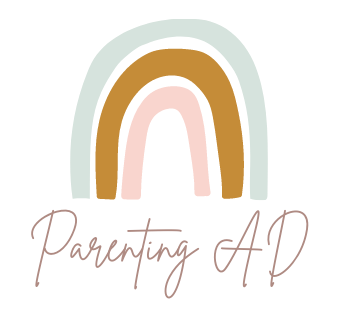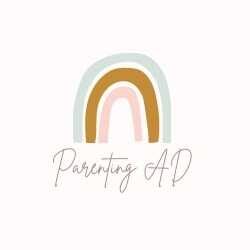What is Effective Co-parenting

Roughly half of American children see their parents separate or divorce, and it affects the child’s mental and emotional well-being. But now, raising children with your ex-partner has become more common and we find ourselves co-parenting for the rest of our lives. If you’re divorced or separated and are sharing the parenting duties with your ex it is critical to put your children’s well-being first, and that’s where co-parenting comes in! This post will provide you with the definitions of coparenting as well as provide tips on how to be the most effective co-parent.
Is co-parenting a new term for you, or are wondering what is the definition, what does it entail, and ultimately how can you co-parent to help raise successful kids? Yeah, we’ve been there too. In this article, you’ll get detailed information about co-parenting, its benefits, tips for a successful joint custody agreement, and its significant importance for divorced or separated parents. Keep scrolling and read on to learn more about how to raise your kids together, even when you’re not, well, together.
What is Co Parenting? Coparenting Defined.
Well, there’s no real guidebook on parenting, which means that there’s also not a great guide book on co-parenting with an ex. So, what is co-parenting? Co Parenting is a child custody agreement in which both parents continue to participate in their kid’s upbringing and activities. Co-parenting describes the parenting relationship where two parents are not in a relationship or romantically involved but share the duties for their kids.

In this agreement, both parents are collectively involved in decision-making for their children’s education, health care, finances, and social activities. This is common in joint custody situations, but also where both parents are legal guardians for the child or children. Although co-parenting is quite challenging, it can and does work if both parents can have healthy communications focused on solutions. In simple words, communication is a key in co-parenting.
Co-parenting puts the kids as the priority and center of the new now relationship – the one A.D. or after divorce. Co-parenting helps to enable your children to maintain close relationships with both parents.
There are some important terms associated with co-parenting. Let’s take a look at definitions to clear them out for you.
Co-Parenting Definitions
Co-parenting Agreement or Co Parenting Plans
The co-parenting agreement or co-parenting plans is an agreement in which both parents or consenting adults raise the child together and contribute to child care. A co-parenting agreement will outline:
- Names of parents
- Names of children
- Living arrangement details: Primary residence, visitation schedules
- Children’s holiday schedule and special events (school breaks, birthdays, etc)
- Childcare arrangement – guidelines when neither parent is home (daycare, babysitters, etc.)
- Acceptable / unacceptable forms of disclipline
- Daily routines
- Extracurricular activities
- Budget / expenses management (child support or split expenses)
- Insurance information and medical decision approach
Co-parent Classes
Co-parent classes, or sometimes called Child In the Middle classes, are effective programs that focus on the enhancement of children’s abilities and the improvement of parental relationships. The course provides critical information and skills to help children adjust after a divorce or separation. Apart from it, if you’re interested in improving your personal skills and growing as a parent, co-parent classes are beneficial for it. You’ll typically take this course as part of your divorce proceedings, and it can also be taken online.
Coparenting Therapy with Co Parent Mediator or Counselor
A co-parent mediator or counselor is a form of therapy where parents focus on working together more effectively. It is with a qualified therapist that works with both parents to benefit their children. They will provide tools and techniques to teach parents how to communicate and raise concerns about their children and work to reduce conflict and stress. This counseling is best for both parents to attend, but can also be one parent to help in high conflict co-parent disputes.
Parenting Coordinator
Parents can also appoint a parenting coordinator as a neutral third party. This person is typicaly an attorney or mediator who helps co-parents manage their parenting plan and resolve disputes. Parent coordinators can help mediate issues such as fiancial disagreements, schedule changes, choosing a new school, getting orthodonistics work, or other issues.
In some situations, a judge will appoint a parenting coordinator and outline their duties. These could include ensuring compliance to the parenting plan or making decisions if both parents reach an impasse. A parent coordinator cannot modify custody or make core legal custody decisions, but they can help to resolve issues by acting as alternative dispute resolution specialist.
Benefits of Co-Parenting for Children

There will be conflicts and disagreements, but when co-parenting is done right, it provides long-term benefits to both you, your ex and your children. Here are the benefits that your children can reap by co-parenting.
Solid Relationship with Both Parents
One of the powerful advantages of co parenting is that children develop a meaningful relationship with both parents. Moreover, it allows the kid to bond with parents without feeling stress or guilt. And this is crucial for a child’s mental well-being.
Feel Secure & Stable
When the children are confident of the love of both parents, they’ll feel more secure & stable at home and will adjust quickly.
Mentally & Emotionally Healthier
Children who are living in a healthy environment are mentally & emotionally healthier as compared to those who are exposed to conflicts. Coparenting develops the stamina in children to cope with mental health challenges like depression, anxiety, and low self-esteem.
Flexibility to Resolve Conflicts
When children see their parents working together and resolving conflicts during breakups, they learn to solve problems in painful situations peacefully. Also, with effective coparenting, your children will grow up with reduced conflicts and have flexibility in their attitude.
Consistency
When a child experiences consistency in communication, schedules, rules, and the same rewards between both households, it provides him with a consistent routine. He’ll be aware of the structure and routine.
The Bottom Line
Here’s the truth, coparenting can be extremely hard, especially if you have a high conflict situation. However, it can also be extremely rewarding and beneficial for the children if both parents are able to put aside their emotions, and learn to communicate and work together effectively to raise kids.
Continue to check out ParentingAD.com for more co parenting tips.
Other Co-Parenting Resources
- Parenting agreements from NOLO – https://www.nolo.com/legal-encyclopedia/parenting-agreements-29565.html
- Parenting Coordinator (Forbes) – https://www.forbes.com/sites/patriciafersch/2021/04/16/does-a-parent-coordinator-help-in-high-conflict-custody-cases/
- 10 Signs of Highly Effective Co Parenting Relationship – https://www.verywellfamily.com/signs-of-a-healthy-coparenting-relationship-2997282



Everything is very open with a very clear description of the challenges. It was really informative. Your site is very helpful. Many thanks for sharing!
I would like to thank you for the efforts you have put in writing this website. Im hoping to view the same high-grade blog posts by you later on as well. In fact, your creative writing abilities has encouraged me to get my own, personal site now 😉